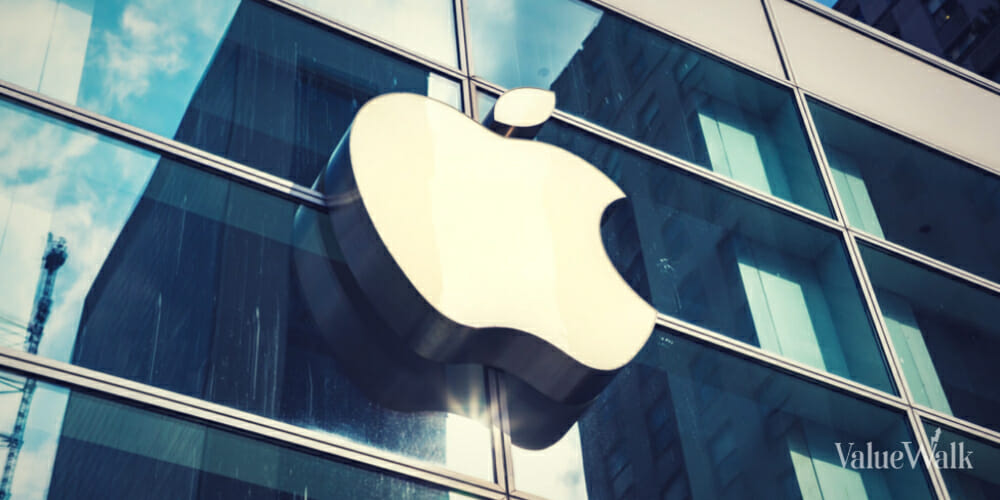Apple at $3 Trillion: Can This Giant Keep Growing?

It seems like just yesterday when Apple (NASDAQ:AAPL) was in the financial headlines for achieving a $2 trillion market capitalization. Now valued at a whopping $3 trillion, Apple has certainly earned its “Magnificent Seven” membership, but this raises the question of what’s achievable in 2024.
Apple’s market cap reached $3 trillion in August, so this time around, investors might wonder whether it’s too bloated to be sustainable. However, while Apple certainly has its share of challenges to face in the coming year, it’s always possible for its stock to continue climbing the so-called “wall of worry.”
It’s about value, not valuation
If you’re going to apply traditional valuation metrics to Apple, then it’s awfully hard to build a compelling bullish argument. For example, Apple’s GAAP-measured trailing 12-month price-to-earnings (P/E) ratio is 31.55, versus the sector median P/E ratio of 25.84.
Looking at it from a different angle, Apple stock is up nearly 50% year to date, which isn’t normal and might make value-focused investors uncomfortable. Yet, Apple’s growth as a company may justify its valuation.
In other words, Apple’s value derives not from traditional metrics but from its consistent delivery of strong sales figures. For example, in Apple’s fiscal fourth quarter, it generated $89.5 billion in revenue, including $43.8 billion from iPhone sales. Furthermore, Apple served up a nice surprise with $22.3 billion in quarterly Services segment revenue, up 16% year over year and above the analysts’ consensus estimate of $21.4 billion.
On the other hand, Apple CEO Tim Cook warned of an “uneven macroeconomic environment,” perhaps referring to higher-for-longer interest-rate policy in the U.S. and China’s uneven recovery from COVID-19. Additionally, while it’s not Apple’s main source of income, it still has to deal with soft personal computer (PC) sales; alarmingly, Mac revenue fell 34% to $7.6 billion in Apple’s most recently reported quarter.
Like every other company, Apple will have roadblocks to overcome in 2024. However, it can thrive as long as the American consumer is strong. Black Friday and Cyber Monday sales broke records this year in the U.S., indicating that people are willing and able to “shop ’til they drop” despite inflationary pressures.
Going forward, investors should bear in mind that smartphone sales are Apple’s bread and butter. A recovery in the PC market would certainly benefit Apple, but it’s not a requirement for it to maintain its $3 trillion market cap. Thus, investors should keep an eye on Apple’s iPhone sales updates as they could presage the future trajectory of its stock.
Focusing on China and India
In Apple’s most recently reported quarter, its China-based revenue fell 2.5% year over year to $15.1 billion. It’s another sign that Apple’s biggest challenge isn’t the American consumer.
What U.S.-based investors need to keep in mind is that Apple faces fierce competition in China from Huawei. Americans probably don’t think about Huawei very often, but the company has a huge presence in China’s tech-gadget market.
Additionally, that’s not Apple’s only challenge in China. The company also relies heavily on Chinese suppliers for product components. That’s not a comfortable scenario during a time of high tensions between the U.S. and Chinese governments .
This isn’t to suggest that Apple relies entirely on China for its components. Among the company’s most important suppliers and assemblers is a company in Taiwan known formally as Hon Hai Precision Industry Co., although most Americans call it Foxconn.
Not to attach too much importance to Foxconn, but it’s certainly a positive sign for Apple that Foxconn recently reported robust sales. In particular, the Taiwanese company’s November revenue rose 18% to the equivalent of US$20.6 billion.
Additionally, Apple is evidently preparing to shift its focus away from China. According to Apple Insider, the company “asked its battery suppliers to scale up production in India in time for manufacturing of the iPhone 16.”
It’s unlikely that Apple can make a full, clean break from China as a supplier. Nevertheless, a pivot to India could help it circumvent tensions and troubles in China.
One source told Apple Insider, “If all goes well with iPhone 16 battery supply, Apple plans to move more iPhone battery production to India.”
Eyeing $4 trillion in 2024
Getting Apple’s market cap to $4 trillion and its stock price to $250, $300 and more in 2024 won’t be easy. However, if 2023 has taught the market anything, it’s that big tech firms can continue to get bigger.
Thus, investors shouldn’t lost faith in Apple stock, even if its valuation seems lofty in December. Despite its persistent problems, Apple hasn’t lost its relentless drive to find solutions, overcome obstacles and sell smartphones in mind-blowing quantities.

Comments are closed.